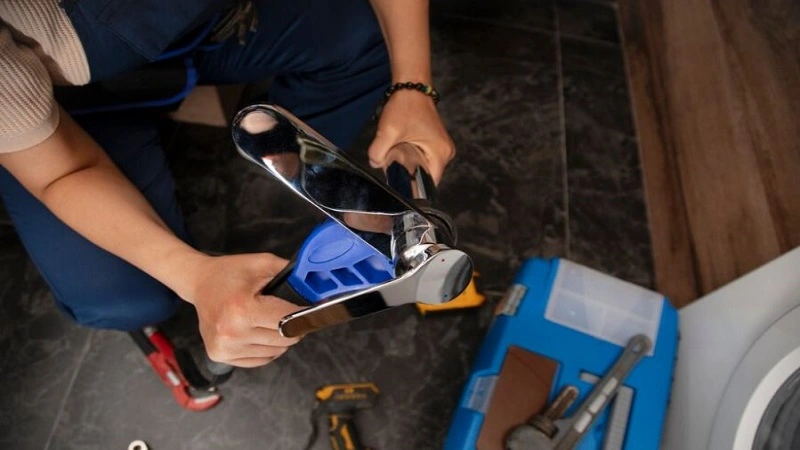Key Takeaways:
- The importance of recognizing and addressing common drain blockage signs early.
- Insights into the causes of drain blockages and eco-friendly maintenance practices.
- How regular, professional drain maintenance contributes to a healthy home environment.
- Strategies for choosing effective and reliable drain cleaning companies.
Table of Contents:
- Introduction to Drain Maintenance
- Common Signs of Drainage Issues
- Causes of Drain Blockages
- The Benefits of Professional Drain Maintenance
- Eco-Friendly Drain Cleaning Practices
- The Cost of Neglect: Consequences of Poor Drain Maintenance
- How Often Should Drains Be Cleaned?
- Choosing the Right Drain Cleaning Service
- Preventing Drainage Problems in the Future
Introduction to Drain Maintenance
The intricacies of drain maintenance are often overlooked until a problem arises, leading to costly and unpleasant repairs. Drainage systems form the hidden arteries of our homes, and just like our bodies, they require regular check-ups and cleaning to function properly. Aside from preventing blockages and backups, regular drain maintenance by skilled drain cleaning companiesensures that your home’s pipes remain efficient and hygienic, which is crucial for the wellness of the house’s inhabitants. Effective drainage also safeguards your home against structural damage, as lingering moisture can weaken foundations and create a welcoming environment for mold and pests.
Common Signs of Drainage Issues
Identifying warning signals early on can steer homeowners away from future hassles and excessive repair bills. Slow-draining fixtures imply a localized obstruction, whereas multiple sluggish drains indicate a more serious concern in the sewer line. Unpleasant odors can also signal trapped food particles, grease, or, more concerning, sewer line issues. Gurgling noises may bode an impending clog, drawing attention to restricted flow and trapped air within the plumbing system. Recognizing and responding to these early warning signs can make all the difference in maintaining an efficient drain system.
Causes of Drain Blockages
A blockage can stem from various sources, such as daily activities introducing materials like hair, soap residue, and kitchen waste into the plumbing system. Certain habits, including pouring cooking oil down the sink or flushing non-biodegradable materials like wet wipes, significantly increase the risk of clogs. Nature can also play a role; for instance, tree root infiltration into sewer lines can cause serious issues, leading to reduced flow and eventually complete blockage. Regular monitoring and mindful disposal habits are vital for keeping clear pathways in your drains.
The Benefits of Professional Drain Maintenance
While DIY methods have their place, there are significant advantages to seeking the services of professional drain cleaners. Seasoned technicians perform thorough evaluations and cleanings with tools and techniques born of their expertise, which can extend the lifespan of your plumbing system. High-pressure water jetting and specialized inspection cameras are among the advanced technologies the pros utilize. Partnering with reputable drain cleaning companies also includes getting informed advice on maintaining your drains and potentially nipping future problems in the bud.
Eco-Friendly Drain Cleaning Practices
In recent years, the shift towards sustainable living has also impacted how we maintain our drains. Eco-friendly drain cleaning solutions are better for both the environment, as they prevent toxic chemicals from contaminating water sources, and for households, by avoiding exposure to hazardous substances. Enzymatic cleaners are one alternative, which breaks down organic material with natural bacteria. Embracing these greener methods is a responsible choice and can effectively prevent clogs. The Environmental Protection Agency advocates for such environmentally conscious decisions, emphasizing their role in preserving our planet’s health.
The Cost of Neglect: Consequences of Poor Drain Maintenance
Drain maintenance often falls by the wayside in the bustle of daily life, but the consequences of neglect can be significant. Potential outcomes include silent damage to the structural integrity of your home, costly emergency plumbing services, and even health risks from exposure to sewage and mold. Timely maintenance actions can preempt these unwelcome events, ensuring the house remains a safe and comfortable space for its occupants.
How Often Should Drains Be Cleaned?
Frequency is pivotal when it comes to drain cleanings. Most experts recommend a comprehensive drain cleaning every one to two years, depending on the number of residents and the overall usage of your plumbing system. Additionally, certain signs—water pooling around a floor drain, for example—warrant immediate attention and could indicate a deeper issue within the system. Sticking to a preventive maintenance schedule can significantly reduce the potential for unexpected plumbing crises and provide peace of mind.
Choosing the Right Drain Cleaning Service
Finding a quality service entails more than selecting the first option from a search engine. Veterans in the field will have a solid reputation backed by testimonials and the necessary certifications. Insights into the company’s methodologies and customer service etiquette are crucial determiners of a promising partnership. Always take the time to conduct due diligence when selecting your drain maintenance provider. Additionally, please inquire about the range of services the drain cleaning offers to ensure they can effectively address your specific needs. Transparency regarding pricing, including any potential additional charges or fees, is essential for establishing trust and avoiding unexpected expenses. Lastly, consider the responsiveness and availability of the drain cleaning service, particularly in emergencies, to ensure prompt assistance whenever plumbing issues arise.
Preventing Drainage Problems in the Future
Ultimately, the best way to approach drain maintenance is through preventative care. Simple habits like regularly cleaning drain stoppers, avoiding pouring grease down the sink, and installing appropriate strainers can all contribute to the longevity and efficiency of your plumbing. Enacting these best practices with regular professional inspections sets a foundation for a worry-free drainage system.
